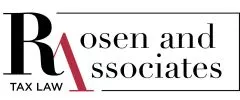On April 16, 2024, the Canadian government unveiled a new budget, prioritizing the urgent need to increase the supply of affordable housing as one of its main goals. Two standout measures, greatly capturing the attention of eager homebuilders and developers, are the introduction of a temporary accelerated capital cost allowance ("CCA") and the Eligible Purpose-Built Rental Housing ("EPBRH") incentive.
Temporary Accelerated Capital Cost Allowance (CCA)
Traditionally, the CCA rate for Class 1 depreciable property has been 4%. Class 1 depreciable properties typically include buildings acquired after 1987 that do not fall into another CCA category. The new proposal increases this rate to 10%, aiming to enhance after-tax returns for builders and thus, providing a greater incentive for the construction of new rental housing. It is important to understand that this measure does not increase the total amount of deductions available. Instead, it allows businesses to claim these deductions more quickly.
Qualification Criteria:
- Construction Timeline: The accelerated CCA will apply to projects that commence construction after April 15, 2024, and prior to January 1, 2031, with the requirements that homes must be move-in ready by January 1, 2036.
- Project Requirements: To qualify, projects
must:
- Be a residential complex with a minimum of 4 apartment units or 10 private rooms/suites.
- Ensure that at least 90% of the residential units are used for long-term rental.
- Conversion Projects: Non-residential buildings converted to residential use may also qualify, provided they meet the above conditions.
- Exclusions: The accelerated CCA is not applicable to renovations of existing residential complexes. However, costs associated with new additions to existing structures could potentially be eligible, subject to compliance with the outlined conditions.
Eligible Purpose-Built Rental Housing (EPBRH) Incentive
In addition to the accelerated CCA, the budget has also implemented the new EPBRH, which aims to motivate developers to construct additional rental units. This incentive provides an exemption from the Excess Interest and Financing Expenses Limitation ("EIFEL") rules, which typically restrict the deductible amount for interest and financing expenses.
Qualification Criteria:
- Rental Housing Requirements:
- Must have at least 4 private apartment units or 10 private rooms.
- A minimum 90% of the rental units must be designated for long-term tenants.
- Interest and financing expenses have to be incurred prior to January 1, 2036.
- Effective Date: These exemptions will apply to taxation years commencing on or after October 1, 2023.
Implications for Homebuilders and Developers
The introduction of these measures represents a significant opportunity for the homebuilding and development community. By increasing after-tax returns and providing relief from stringent financing expense limitations, the government aims to catalyze a much-needed expansion of affordable rental housing across the country. Builders and developers who seize this opportunity will not only benefit financially but will also play a crucial role in addressing the pressing housing affordability crisis.
The content of this article is intended to provide a general guide to the subject matter. Specialist advice should be sought about your specific circumstances.



